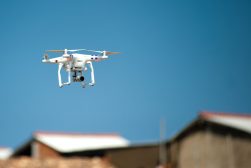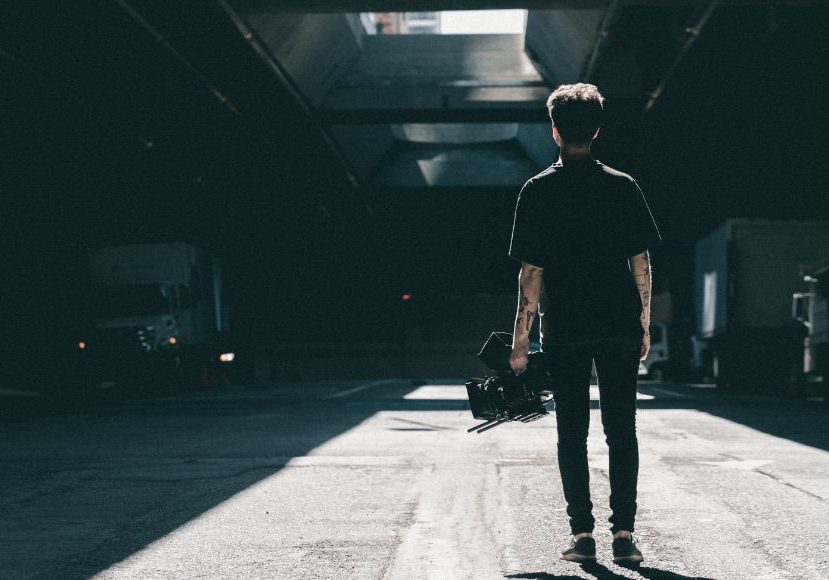
Is It Illegal to Record Someone Without Their Permission?
Delve into the legalities of recording someone without consent, understanding the nuances and implications across different jurisdictions.
Learn | By India Mantle
Can you film people in public? The simple answer is yes, you can.
Aside from a few exceptions, it’s legal to record someone without their permission. In fact, genuine shots like this can lead to amazing videos.
However, just because filming without permission is legal doesn’t mean it’s ethical.
As a filmmaker, you must know how to go about recording people the right way. It’s vital to familiarize yourself with the exceptions to avoid legal ramifications.
Lucky for you, I’ll give you the lowdown on filming in public spaces. Let’s dive right in!
Table of Contents
Is It Illegal to Record Someone Without Consent?
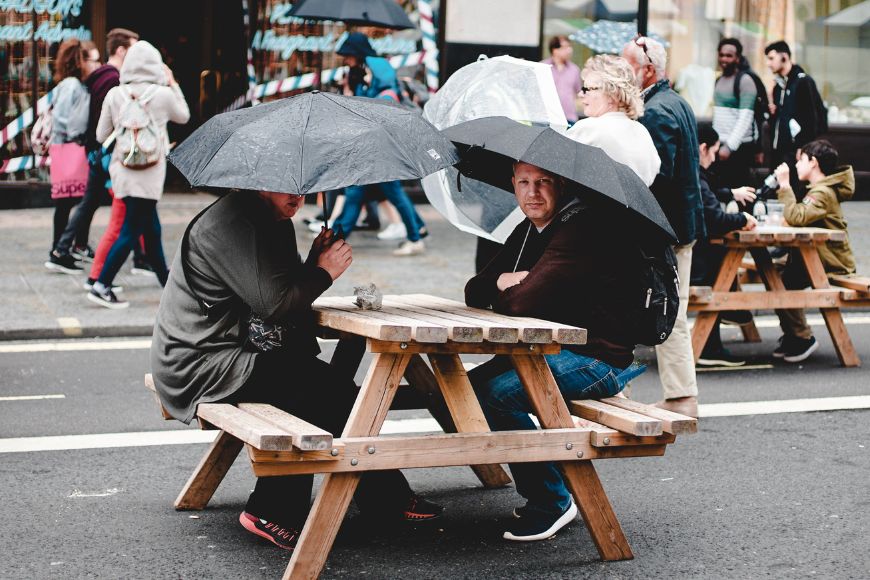
Whether it’s illegal to record someone without their consent largely depends on the jurisdiction and the context.
In many places, recording private conversations without the knowledge of all parties involved is prohibited.
However, laws vary, with some regions allowing “one-party consent,” meaning only one person involved in the conversation needs to be aware of the recording. Always consult local laws before recording any conversation or interaction.
There’s a certain charm to candid shots of people going about their lives. These recordings are both fun and challenging to capture.
Most of the time, you won’t encounter issues when making video content in public. That’s because it’s legal to film someone in public without their consent.
As a general rule of thumb, you can record someone in the public domain. Transportation facilities and street view videos are all fair game.
Unfortunately, you can easily overstep your rights. It’s an illegal video recording when you film in a situation where there’s a reasonable expectation of privacy!
The Expectation of Privacy
Reasonable expectation of privacy means a person may be in a public space but doing activities in private.
For instance, you can’t film people in restrooms and locker rooms as these areas have a level of privacy. If you’re standing on the public sidewalk, you can’t peer into someone’s home and take photos from the window.
The rule also extends to those having private conversations, even if they’re outdoors.
The Right of Publicity
While it’s legal to record in public, you should avoid capturing faces. This is because you need people’s permission to post their photos online.
The right of publicity is applicable if you use someone’s face for commercial purposes. It’s illegal to make money from a person’s video recording without their consent!
Public figures are an exception. It’s okay to film celebrities or politicians as long as you don’t defame them.
Can You Film Yourself in Public?
Yes, you can film yourself in a public space. Still, because of the right of publicity, you should blur the faces of anyone you capture in the background.
This is especially true if you use the recording to make money.
Can You Make Audio Recordings in Public?
In general, you can’t make an audio recording of a private conversation made in public. There’s a reasonable expectation of privacy between these people.
The exception to this rule is if you have a one-party consent state.
Under the federal statute, you can make sound recordings even if you’re not part of the phone conversations – provided one party approves of your recording.
In short, you can listen in if one person consents to your presence.
Can You Film on Private Property?
Surprisingly, you can record someone without their consent if they’re on your private property. You may use a hidden camera to capture someone’s footage inside your home.
However, if you’re on another person’s property, you must get permission to film from the property owner.
Even public establishments like the local café have the right to ask you to stop recording. They can get you to leave the premises and even have you arrested for trespassing.
In this case, it’s best to get a permit to avoid accusations of illegal video recording.
Can You Film People’s Houses?
If you’re standing in the public domain, any visible buildings are fair game. This means you can film someone’s house from outside.
Still, you should avoid zooming into windows since they have a reasonable expectation of privacy indoors.
Can You Film in Public Buildings?
Can you film inside public buildings like libraries and malls? The short answer is yes, but you should still follow policies.
Each public property has its rules.
For example, you can’t interfere with staff or make noise in a library. Some places ban the use of smoke machines, flash, or other effects as well.
It’s up to you to research the policies to ensure you have a smooth recording session. Know that these places can kick you out if you don’t follow regulations!
Is It Illegal to Record Video in a Hospital?
Are you planning on making educational videos that take place in hospitals? You need two-party consent before you do!
Despite being a public building, patients in hospitals and other emergency departments all expect a degree of privacy. Because of this, it’s illegal to record a patient without consent.
A two-party consent state means all parties involved in the filmmaking know they’re getting recorded. You have to inform patients that once you upload the video, you have little control over its use.
Can You Film Police Officers?
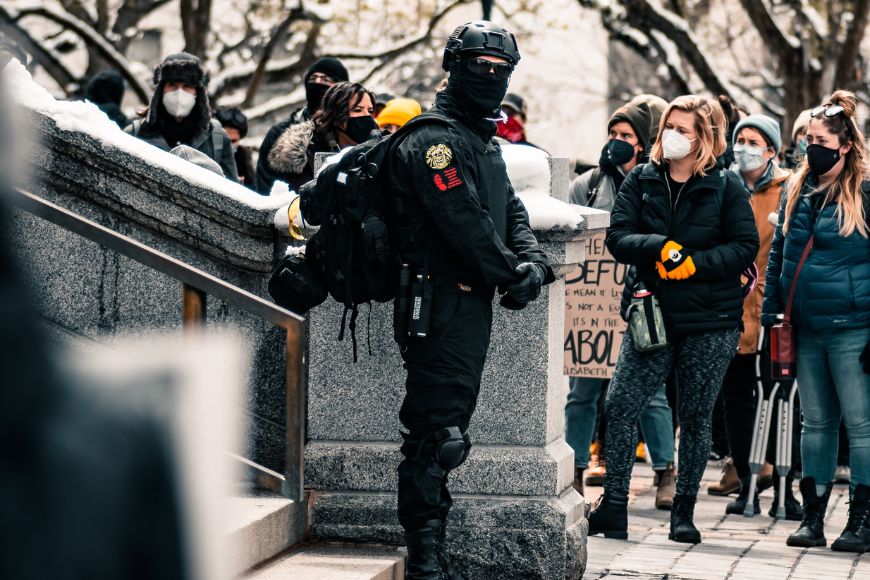
Moving on, here’s what you should know about recording law enforcement officers and other government officials.
Is It Illegal to Record a Police Officer?
Police officers are public servants, meaning you have every right to record them.
The only time they can stop you is when you’re interfering with their job. If you’re not bothering anyone and simply recording, then it’s unlawful for policemen to order you to stop.
Sadly, many officers don’t know this. As a result, plenty of people get arrested.
It’s worth noting that you can’t record military bases and naval installations essential to national defence. You have to get permission from the commanding officer. Otherwise, you could end up in jail.
Can Police Officers Record You Without Consent?
When dealing with policemen, you can say goodbye to your expectations of privacy.
Policemen can have body cameras to record any interaction with the public. These videos are vital in legitimate law enforcement operations.
What’s more, the police can place hidden cameras and surveillance cameras to take secret recordings. And no, they don’t need a warrant to do this, and they can take any recording into evidence.
When Recording Becomes Illegal
Sometimes filming in public is necessary for videographers to make money. Yet, illegal video recording can have expensive ramifications.
The penalty for such a criminal offence depends on which state or country you’re in.
In general, you can expect a fine, jail time, or both! Due to this, you should know the law and seek a basic film permit whenever you’re working on a project.
What to Do if You’re Stopped From Filming
Bear in mind that you have the constitutional right to film in public. Your videos are your property, and nobody except a judge can order you to delete clips.
That said, as the videographer, you should assess the risk and decide if you should back down.
If you’re not in danger and someone asks you to stop filming, you can opt to grant their request to keep the peace.
What to Do if Someone Recorded You Without Your Consent
On the flip side, if someone is taking an illegal video recording of you, here’s what you can do.
First, talk to the person and ask them to delete your video. If they don’t stop the illegal recording, you can call the police for help.
Be aware of what’s legal or not.
In cases where the recorder is standing on public property, he can still film you without your permission. Remember that sometimes all you have to do is step out of the frame.
Lastly, if someone has a video of you and they posted it online, seek legal advice from a trusted lawyer. You can file a lawsuit if they’re monetizing off of the film!
Tips for Filming People in Public, Legally
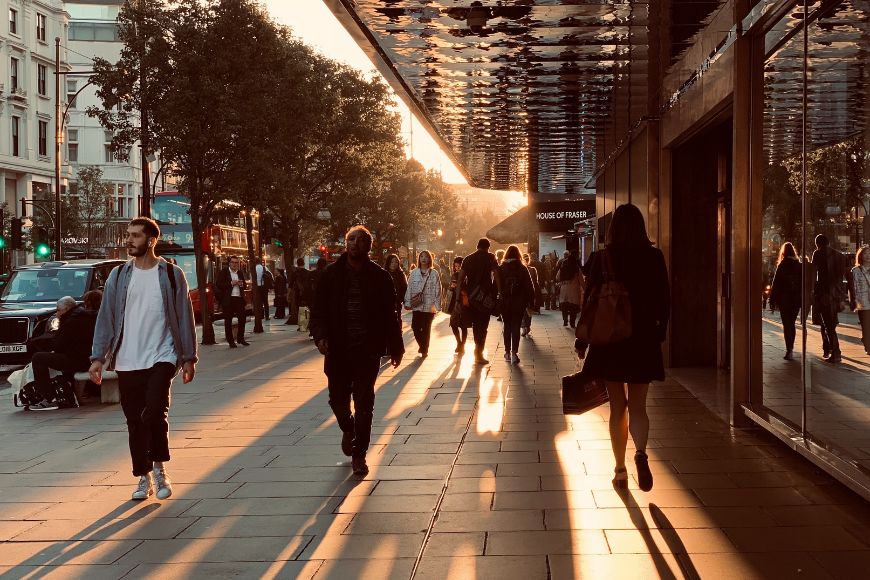
Here are some tips to ensure you can film people in public.
1. Check Local Laws
Each establishment has its own policies. Different states and countries also have varying laws on public recording.
You must check the laws beforehand and obtain permits for filming if necessary. When a private business wants you to leave, you should follow that request.
2. Respect Different Cultures
Other cultures and religions don’t approve of video recordings. For example, people may think you’re disrespectful for filming at churches.
Make sure you’re aware of the culture and avoid creating disruptions.
3. Consider the Ethics of Filming in Public
You can take videos and photos of people in public without their express permission most of the time. Yet, this doesn’t mean you’re entitled to record everyone!
Any ordinary person will feel uncomfortable about getting filmed. Some might have an issue with consent.
Due to this, videographers must consider the ethics of filming in public.
Question yourself: if you were in your subject’s situation, would you want someone recording you in a vulnerable moment? If the answer is no, then you should stop what you’re doing.
The best thing to do is ask the person if you can film them. It doesn’t take much of your time, and it’s good manners to ask first.
If you follow these tips, you can capture amazing videos without fear of clapback!
References:
- https://www.lib.uiowa.edu/about/policies/filmingguidelines/
- https://www.theverge.com/2018/10/24/18015374/whyd-you-push-that-button-record-stranger-public
- https://www.justice.gov/archives/jm/criminal-resource-manual-1050-scope-18-usc-2511-prohibitions
- https://cmsimpact.org/resource/yes-you-can-where-you-dont-even-need-fair-use/
- https://atlasofscience.org/recording-in-the-emergency-department-illegal-or-immoral/
- https://www.law.cornell.edu/uscode/text/18/795
- https://www.aclu.org/news/privacy-technology/warrantless-pole-camera-surveillance-by-police-is-dangerous-the-supreme-court-can-stop-it
- https://www.kpcc.org/2014-09-22/can-cops-record-you-without-your-consent-and-other
- https://scholarship.law.vanderbilt.edu/cgi/viewcontent.cgi?article=2680&context=vlr
- https://www.rcfp.org/reporters-recording-sections/criminal-penalties/
- https://www.acludc.org/en/know-your-rights/if-stopped-photographing-public
As the Content Manager of Shotkit, India Mantle brings with her a lifelong love for photography that she developed during her childhood, watching her father document their family moments with his Nikon EM. In her free time, you find her enjoying the awe-inspiring natural beauty of her home, Northern Rivers, Australia.





